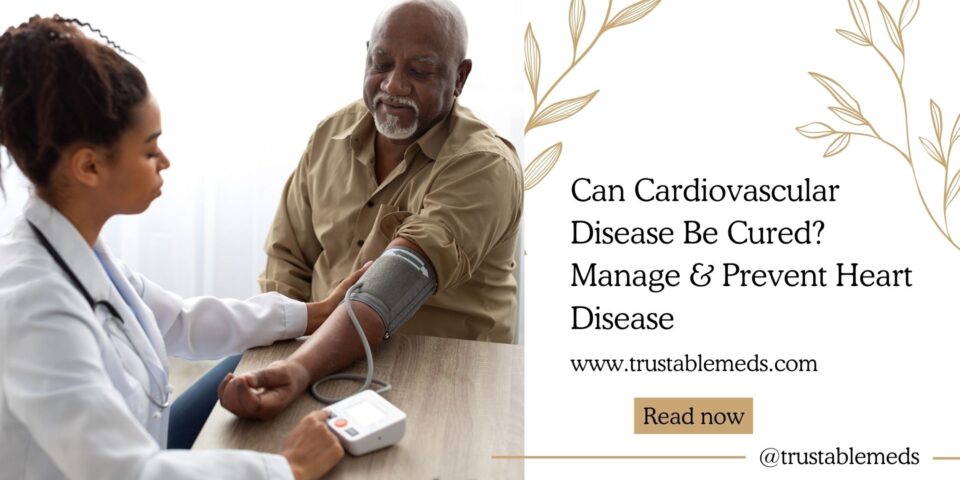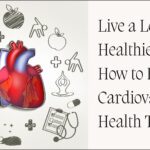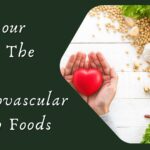Understanding Cardiovascular Disease
Cardiovascular disease (CVD) encompasses a variety of conditions that impact the heart and blood vessels. It includes coronary artery disease, heart failure, stroke, and peripheral artery disease. Understanding the intricacies of CVD is crucial for exploring avenues for its potential cure.
Definition and Types
Cardiovascular disease denotes conditions affecting the heart and blood vessels. Types of CVD include:
- Coronary artery disease
- Heart failure
- Stroke
- Peripheral artery disease
Causes and Risk Factors
The causes of cardiovascular disease are multifactorial, including:
- Poor diet
- Lack of exercise
- Smoking
- High blood pressure
- High cholesterol
- Diabetes
- Family history
Symptoms and Diagnosis
What are the symptoms of cardiovascular disease?
Symptoms of cardiovascular disease vary but may include:
- Chest pain
- Shortness of breath
- Fatigue
- Dizziness
- Swelling Diagnosis often involves tests like EKG, stress tests, and imaging studies.
Impact on Individuals and Society
Diseases of heart stands as one of the primary causes of illness and death globally. It imposes a significant economic burden on individuals, families, and healthcare systems.
Cardiovascular Health (CVD) and erectile dysfunction (ED) are closely linked. Clogged arteries hurt blood flow, both to the heart and the penis. This can cause ED and might be an early warning sign of heart trouble. See a doctor if you experience ED. For erectile dysfunction, men can take Fildena CT 100 mg and Cenforce D
Cardiovascular disease treatment and prevention
Several treatment modalities exist to manage CVD, focusing on symptom alleviation, risk reduction, and improving quality of life.
Medications
Medications such as statins, beta-blockers, ACE inhibitors, and antiplatelet agents are commonly prescribed to manage CVD risk factors and symptoms.
Lifestyle Changes
Lifestyle modifications including diet modifications, regular exercise, smoking cessation, and stress management play a pivotal role in managing cardiovascular health.
Surgical Procedures
Surgical interventions such as angioplasty, bypass surgery, valve repair, and heart transplant may be necessary for advanced cases of cardiovascular disease.
Emerging Therapies and Innovations
Advancements in medical technology and research have led to the development of novel therapies including gene therapy, stem cell therapy, and nanotechnology-based interventions.
Challenges in Curing Cardiovascular Disease
Despite advances in medical science, curing cardiovascular disease remains a formidable challenge due to various factors.
Complexity of the Disease
Cardiovascular disease is multifaceted, involving intricate interactions between genetic, environmental, and lifestyle factors.
Genetic Predispositions
Genetic predispositions play a significant role in the development and progression of cardiovascular disease, posing challenges for targeted therapeutic approaches.
Socioeconomic Factors
Socioeconomic disparities influence access to healthcare, preventive measures, and treatment options, exacerbating the burden of cardiovascular disease among vulnerable populations.
Lack of Access to Healthcare
Limited access to healthcare services, especially in underserved communities, hinders early detection, diagnosis, and management of CVD.
Promising Research and Breakthroughs
Despite the challenges, ongoing research efforts continue to yield promising breakthroughs in the field of cardiovascular medicine.
Stem Cell Therapy
Stem cell therapy holds potential for regenerating damaged heart tissue and improving cardiac function in individuals with cardiovascular disease.
Gene Therapy
Gene therapy aims to address underlying genetic abnormalities associated with diseases of heart, offering personalized treatment approaches.
Immunotherapy
Immunotherapy strategies target inflammatory processes implicated in cardiovascular disease pathogenesis, potentially mitigating disease progression.
Nanotechnology Advancements
Nanotechnology-based interventions enable targeted drug delivery, imaging, and diagnostics, revolutionizing the management of cardiovascular disorders.
Holistic Approaches to Managing Cardiovascular Health
In addition to medical interventions, holistic approaches play a vital role in promoting cardiovascular wellness and reducing disease risk.
Diet and Nutrition
A heart-healthy diet rich in fruits, vegetables, whole grains, and lean proteins helps maintain optimal cardiovascular health and reduces the risk of CVD.
Exercise and Physical Activity
Regular physical activity strengthens the heart, improves circulation, and helps control weight, lowering the risk of cardiovascular disease.
Stress Management
Stress management techniques such as mindfulness, meditation, and yoga alleviate psychological stressors, which can contribute to diseases of heart risk.
Integrative Medicine and Alternative Therapies
Integrative medicine approaches incorporating acupuncture, herbal remedies, and massage therapy may complement conventional treatments for cardiovascular health.
Prevention Strategies for Cardiovascular Disease
Preventive efforts focus on raising awareness, implementing screening programs, advocating for policy changes, and promoting healthy lifestyles.
Education and Awareness Campaigns
Public health campaigns aim to educate individuals about cardiovascular risk factors, symptoms, and preventive measures.
Screening and Early Detection Programs
Routine screening for hypertension, diabetes, and cholesterol levels facilitates early detection and intervention, reducing the incidence of cardiovascular events.
Public Policy and Advocacy Efforts
Advocacy initiatives seek to enact policies promoting smoke-free environments, healthy food options, and access to affordable healthcare services.
Corporate Wellness Programs
Employers implement wellness programs offering incentives for healthy behaviors, fostering a culture of cardiovascular health in the workplace.
The Future Outlook: Hope and Challenges
The future of cardiovascular medicine holds promise for innovative therapies and collaborative efforts, yet significant challenges persist.
Role of Technology in Cardiovascular Health
Technological advancements in telemedicine, wearable devices, and artificial intelligence enhance CVD management and monitoring.
Collaborative Efforts in Research and Development
Cross-disciplinary collaborations among scientists, clinicians, and policymakers drive research initiatives aimed at unraveling the complexities of cardiovascular disease.
Addressing Disparities in Healthcare
Efforts to reduce healthcare disparities and improve access to preventive services are essential for combating the disproportionate burden of CVD among marginalized populations.
Optimism Amidst Persistent Challenges
While challenges in curing cardiovascular disease endure, optimism prevails as the collective efforts of the global healthcare community advance the frontier of cardiovascular medicine.
FAQs
1. How to prevent cardiovascular disease?
- Live a heart-healthy lifestyle to prevent CVD: eat a balanced diet rich in fruits, veggies and whole grains, exercise regularly, maintain a healthy weight, manage stress, and don’t smoke.
2. What are the top 10 cardiovascular diseases??
- Top 10 cardiovascular diseases:
- Coronary heart disease
- Stroke
- Rheumatic heart disease
- Peripheral arterial disease
- Congenital heart disease
- Deep vein thrombosis & pulmonary embolism
- Aortic aneurysm
- Heart failure
- Cardiomyopathy
- Arrhythmias
3. How can lifestyle changes mitigate cardiovascular risk?
- Adopting a healthy lifestyle, including a balanced diet, regular exercise, stress management, and smoking cessation, can mitigate cardiovascular risk factors and improve overall heart health.
4. Are there alternative therapies for managing cardiovascular disease?
- Integrative medicine approaches, including acupuncture, herbal remedies, and mind-body techniques, may complement conventional treatments for cardiovascular health, although evidence is limited.
5. Is hypertension a cardiovascular disease?
- No, hypertension is not itself a cardiovascular disease, but it is a major risk factor for them OSF HealthCare: [invalid URL removed]. This means that having high blood pressure (hypertension) significantly increases your chance of developing CVD like heart disease and stroke.



